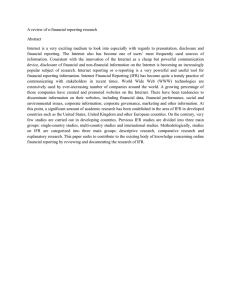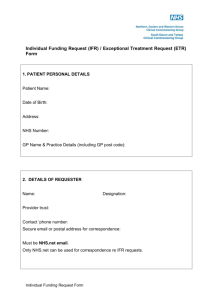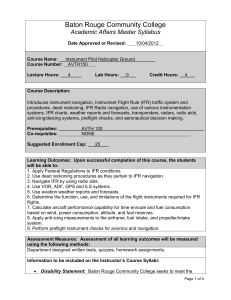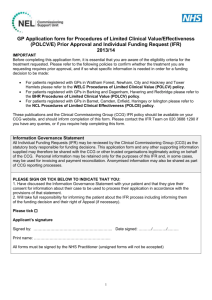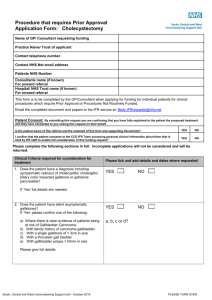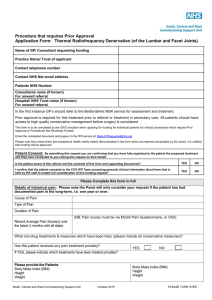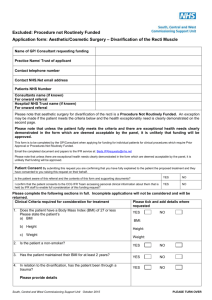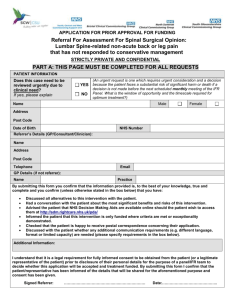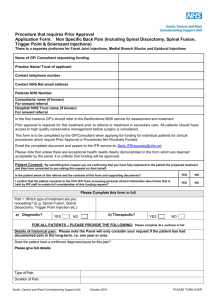the full job description
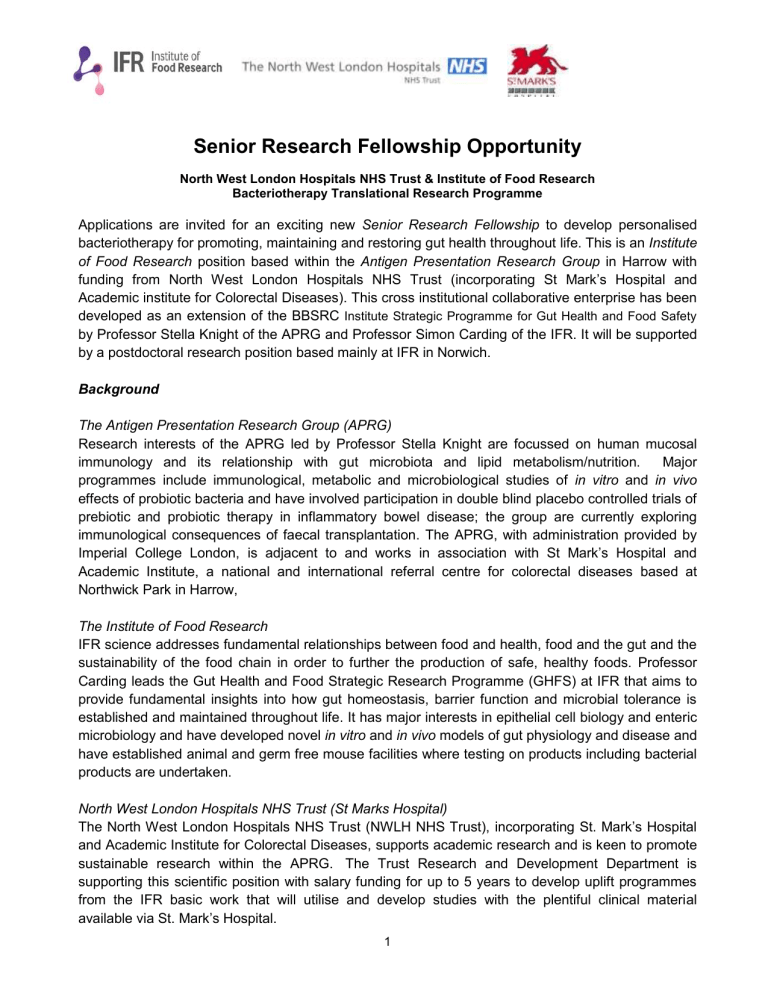
Senior Research Fellowship Opportunity
North West London Hospitals NHS Trust & Institute of Food Research
Bacteriotherapy Translational Research Programme
Applications are invited for an exciting new Senior Research Fellowship to develop personalised bacteriotherapy for promoting, maintaining and restoring gut health throughout life. This is an Institute of Food Research position based within the Antigen Presentation Research Group in Harrow with funding from North West London Hospitals NHS Trust (in corporating St Mark’s Hospital and
Academic institute for Colorectal Diseases). This cross institutional collaborative enterprise has been developed as an extension of the BBSRC Institute Strategic Programme for Gut Health and Food Safety by Professor Stella Knight of the APRG and Professor Simon Carding of the IFR. It will be supported by a postdoctoral research position based mainly at IFR in Norwich.
Background
The Antigen Presentation Research Group (APRG)
Research interests of the APRG led by Professor Stella Knight are focussed on human mucosal immunology and its relationship with gut microbiota and lipid metabolism/nutrition. Major programmes include immunological, metabolic and microbiological studies of in vitro and in vivo effects of probiotic bacteria and have involved participation in double blind placebo controlled trials of prebiotic and probiotic therapy in inflammatory bowel disease; the group are currently exploring immunological consequences of faecal transplantation. The APRG, with administration provided by
Imperial College London, is adjacent to and works in association with St Mark’s Hospital and
Academic Institute, a national and international referral centre for colorectal diseases based at
Northwick Park in Harrow,
The Institute of Food Research
IFR science addresses fundamental relationships between food and health, food and the gut and the sustainability of the food chain in order to further the production of safe, healthy foods. Professor
Carding leads the Gut Health and Food Strategic Research Programme (GHFS) at IFR that aims to provide fundamental insights into how gut homeostasis, barrier function and microbial tolerance is established and maintained throughout life. It has major interests in epithelial cell biology and enteric microbiology and have developed novel in vitro and in vivo models of gut physiology and disease and have established animal and germ free mouse facilities where testing on products including bacterial products are undertaken.
North West London Hospitals NHS Trust (St Marks Hospital)
The North West London Hospitals NHS Trust (NWLH NHS Trust), incorporating St. Mark’s Hospital and Academic Institute for Colorectal Diseases, supports academic research and is keen to promote sustainable research within the APRG. The Trust Research and Development Department is supporting this scientific position with salary funding for up to 5 years to develop uplift programmes from the IFR basic work that will utilise and develop studies with the plentiful clinical material available via St. Mark’s Hospital.
1
This unique cross-institutional initiative provides an ideal opportunity for the successful candidate to establish and develop an independent research programme centred on the development and application of novel bacteriotherapies to promote, maintain and restore gut health throughout life.
The Research Programme
Funding from the BBSRC as part of the GHFS Strategic Research Programme provides a platform for examining immunological and microbiological aspects relevant to maintaining a healthy gut. This new venture aims to establish closer and long-term interactions between two groups of researchers with international reputations in human and animal mucosal immunology and enteric microbiology.
The aim of this new initiative therefore is to exploit and translate this expertise in fundamental gut science and biology to develop new strategies and reagents for changing and manipulating the intestinal microbiota to improve or restore gut health in humans. This aim is entirely congruent with that of the new proposed Food and Health Research Centre in Norwich. We already have modified live bacteria (the Ovatus platform) and chemically defined bacterial products that are patented worldwide which we have evidence may be beneficial in treating colitis. The combination of the clinical research capability at St Mark's, the scientific expertise of the APRG and the fundamental and model studies currently being undertaken on developing Bacteriotherapy at IFR provide an unparalleled combination for formal development in this field.
The Senior Research Fellowship
This will be an IFR Academic Centre appointed Fellow (band SC4), funded by NWLH NHS Trust for 5 years, to enable the Fellow to develop an independent research programme and be eligible to apply for RCUK, NIHR and other funding. The Fellow will be based within the APRG at Northwick Park &
St. Mark’s Hospitals. In support of this post, an IFR (GHFS-based) postdoctoral fellow would work with the St Mark’s Fellow across the two sites (Harrow and Norwich) with a particular emphasis on the development of pre-clinical models for evaluating novel bacteriotherapies prior to use in humans.
Exploiting the excellent relationships between the clinical staff at St Mark's and the scientists of
APRG will also provide a fertile environment for developing a clinically relevant programme.
Benefits for the Fellow
Starting salary of xxx commensurate with experience
Fixed funding for 5 years to enable the Fellow to establish an independent career path
Laboratory space, shared facilities in the Section and laboratory consumables allowance for 3 years.
Ability to draw on a diverse range of expertise from internationally recognised colleagues in the
APRG, IFR, St Marks Hospital and Imperial College London.
The Fellow will be encouraged to seek career awards and grant funding from leading funders such as the BBSRC, MRC, Wellcome Trust and NIHR to become self-funding by the end of the 5 year period.
2
Job Description
The successful candidate will have a strong research focus motivated by human immunological or immunologically linked disciplines of microbiology or metabolism and will enhance the collaborative research activities of the APRG by initiating a research programme to complement the multiinstitutional collaborative vision of Professors Carding and Knight.
Main Activities & Responsibilities
Research (40%)
Develop and conduct own research in line with the strategic research themes of the IFR and
APRG, in liaison with Professor Knight.
Strengthen links with existing colleagues and develop new cross-institutional contacts to initiate new research initiatives in an area of immunology, microbiology or immunometabolism
Contribute to the design and analysis of studies within the APRG and IFR
Contribute towards research that can be entered onto the National Portfolio databases
Seek opportunities for translational research wherever possible
Publishing (15%)
Publish high quality papers in peer-reviewed journals, aiming to submit a minimum of 3 publications per annum with an impact factor of 3 or above once established
Present research and represent the IFR and APRG at national and international scientific conferences
Grant Applications (15%)
Successfully obtain research funding in order to become cost-neutral once established
Secure funding for substantive research studies in collaboration with other APRG staff and provide encouragement and guidance to junior research staff to do the same.
Write progress and technical reports to funders (including the BBSRC via the GHFS reporting systems and the GHFS programme manager) and to take part in audits as required
Mentoring, Supervision & Teaching (10%)
Supervise postdoctoral research projects as appropriate, at the highest scientifically rigorous levels and act as a role model through good practice and provision of guidance to junior staff.
Seek to identify opportunities for development of suitable PhD projects within the IFR and
APRG, establishing collaborative PhD studentships where appropriate
Plan and undertake supervision of higher degree students – including MD/PhD students from
St Mark’s Hospital – including pastoral tutoring of postgraduate students
Assist in managing and developing staff including undertaking performance reviews and participation in continuing professional development.
Management / Administrative Activities (10%)
Contribute to continuing safety improvement practice within the APRG
Provide advice and information as appropriate to help inform management practice
Contribute to the usual administrative duties associated with a busy academic and researchactive environment, liaising with the APRG’s administrator on day-to-day running of the Section
3
as required to manage financial, staff and research resources.
Comply with equal opportunities policy, health and safety, ethical handling of human tissues and other and relevant policies
Communication (10%)
Participate in and contribute to APRG activities including meetings and seminars
Represent the APRG and IFR at appropriate scientific meetings and forums
Provide relevant information to the NWLH NHS Trust as appropriate
Identify opportunities for public engagement and participate in established events at IFR and
APRG.
Accountability
Overall accountability will be to the Head of the Antigen Presentation Research Group, Professor
Stella C. Knight.
The APRG is administered by Imperial College London and the post holder will be expected to comply with all relevant College policies, including Data Protection, Financial Regulations, Equal
Opportunities Policy, Promoting Race Equality Policy, Health and Safety Policy, Information Systems
Security Policy and Intellectual Property Rights and Register of Interests Policies.
Job descriptions cannot be exhaustive and so the post holder may be required to undertake other duties, which are broadly in line with the above key responsibilities.
We are committed to equality of opportunity and to eliminating discrimination. All employees are expected to adhere to the principles set out in all equal opportunities policies and procedures, and all other relevant guidance/practice frameworks.
Personal Profile
The successful applicant will need to demonstrate possession of the following attributes:
1. Education and Qualifications
Essential
Higher Degree in Immunology or related area (MD Res, MS, PhD).
>3 years’ experience of independent research, substantiated by publication record.
Desirable
Experience of microbiology or immunometabolism
2. Specialist Knowledge and Skills
Research abilities
Essential
A track record of designing and managing innovative, cross-disciplinary research proposals
A developing international reputation in their field of research
4
Evidence of successfully attracting significant personal research funding
High level of analytical and innovative scientific capability
Knowledge of research methods and statistical procedures
Desirable
Ability to direct the work of a research team and motivate others to produce a high standard of work
Experiences in developing and applying new therapies in humans
Writing & Communication abilities
Essential
Ability to convey ideas and concepts clearly and effectively in speech and in writing in a motivating manner.
A track record of publishing in high quality international peer-reviewed journals.
Ability to communicate, interact and collaborate effectively with other researchers, medical staff and allied staff within IFR, the APRG and collaborating institutions
Ability to interact effectively with the lay public.
Desirable
Evidence of work on human samples
Leadership abilities
Essential
Experience of supervision or involvement with supervision of PhD and/or MD(Res) students
Excellent practical teaching skills
Desirable
Evidence of contribution to the development and performance of colleagues or students through coaching and mentoring.
Experience and capability to act as a role model in areas of research, teaching and management as appropriate
Personal attributes
Essential
A strong cross-disciplinary approach with the ability to work with others across discipline boundaries
Supportive and tolerant with a cooperative and flexible attitude towards work
Disciplined with regard for confidentiality and security at all times
Willingness to travel both within the United Kingdom and abroad to conduct research and attend conferences
Ability to organize workload effectively and work under pressure to meet deadlines
Willingness to undertake any necessary training for the role
3. Relevant Experience
Essential
5
Evidence of specialist skills in immunology, microbiology or metabolism
Good publication record
Application of communication and collaborative skills
Successful supervision of postdoctoral scientists and/or higher degree students
Ability to obtain grant funding.
Desirable
Ability to build and lead a research team
Scientific group administrative skills
4. Additional Requirements
Essential
Ability to comply with essential job requirements which restrict flexibility.
Desirable
A flexible approach towards work and a willingness to contribute to the work of others
Good time management skills.
Applications and enquiries
For further information or to discuss this opportunity informally please contact:
Professor Stella C. Knight – Head, Antigen Presentation Research Group
Professor Simon Carding – Head, GHFS Programme, Institute of Food Research
Further information about the Antigen Presentation Research Group and the Institute of Food
Research can be found at: http://www.ifr.ac.uk and for the GHFS programme at http://www.ifr.ac.uk/research/gut-health/
Applications should be submitted to: Stella Knight
A full curriculum vitae should be included with your application including the following information:
Full name, private address and private telephone number
A confidential fax number and e-mail address, where possible
Degrees (including University and dates)
Past and present posts
List of publications
Brief description of future research plans
Names, addresses and, email, fax numbers, of three referees.
6
